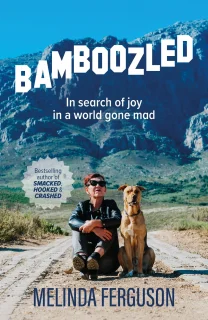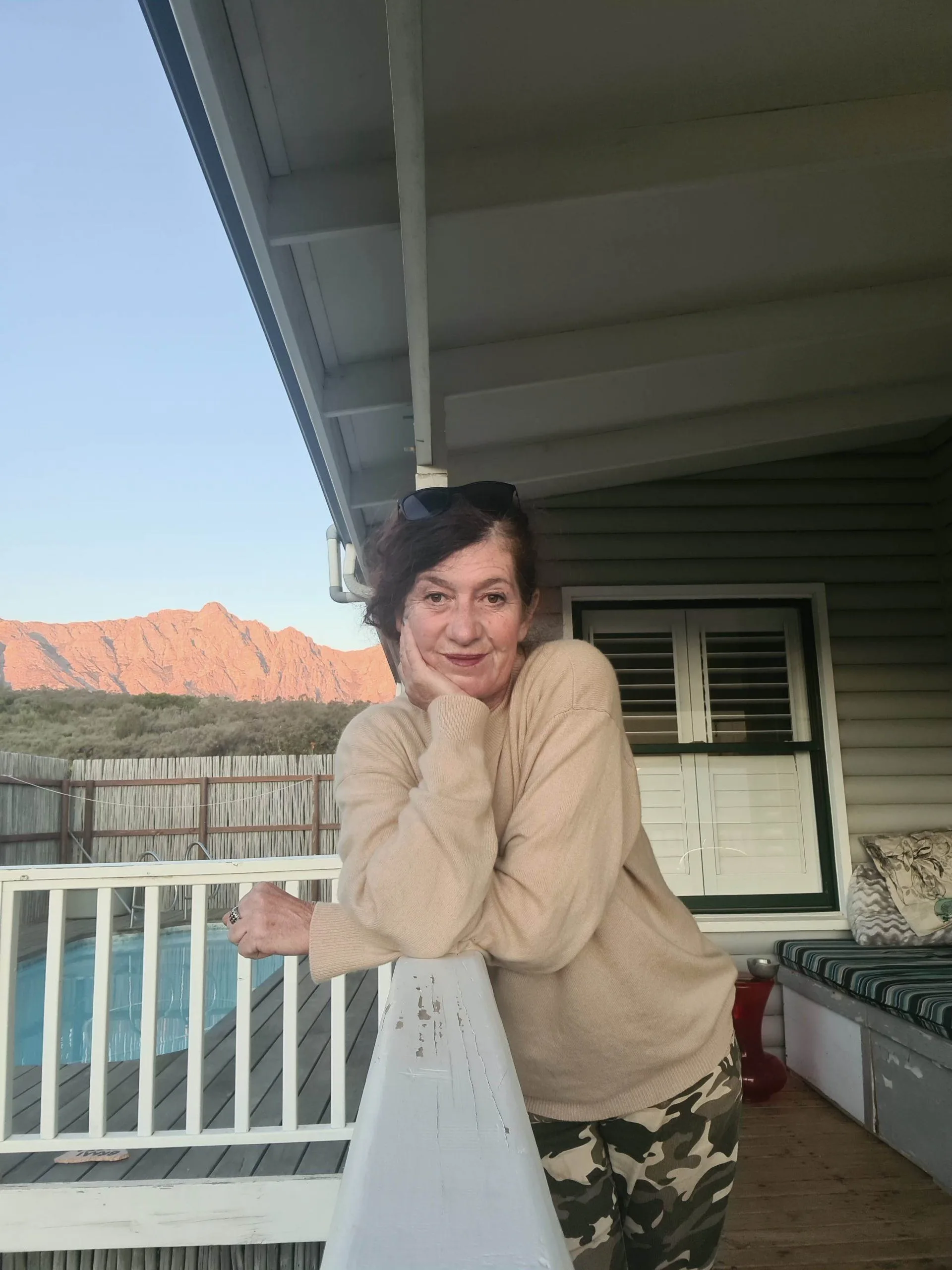Publisher and author Melinda Ferguson talked to Longevity about her book BAMBOOZLED. This is a personal account of her supervised psilocybin journey, which helped her heal from a lifetime of post-traumatic stress disorder (PTSD). During our Wellness Wednesday Instalive session, Melinda explained how she transformed her life from one of addiction, rape, abandonment, and PTSD into success, strength, and resilience.
Healing a lifetime of trauma
In 2013, Melinda had a near-fatal car accident. The experience triggered a break-point, which was precipitated by a lifetime of cumulative trauma. Her PTSD spiralled out of control.
According to the Mayo Clinic, “Post-traumatic stress disorder (PTSD) is a mental health condition that’s triggered by a terrifying event — either experiencing it or witnessing it. Symptoms may include flashbacks, nightmares and severe anxiety, as well as uncontrollable thoughts about the event.”
The car accident followed years of trauma
Melinda’s PTSD resulted from an accumulation of trauma since childhood. It started when she lost her dad as a kid, and her mother became an alcoholic. She followed suit at school, becoming a teenage alcoholic and smoking dope. Melinda then moved on to become addicted to crack and heroin at the age of 23. She also lost custody of her two young children. By the time she hit her early 30s, her life was in tatters.
“I just had sold my soul, my body, my everything for the next hit,” Melinda explains. “So I was one of those really bad addicts. Thankfully, in 1999, the light dawned. I suddenly realised I had a problem. Sitting on a homeless farm, I was surrounded by the kind of people that I’ve always kind of looked down on. In my wildest dreams, I never thought I would be one of them. And yet, that’s where I landed up.”
Tough love is the only way
Melinda believes from her own personal experience, addicts often don’t have the capacity to see the reality of their own situation and seek the right help. She also credits her mother-in-law’s tough-love approach to her addiction for facilitating their getting clean. Melinda describes the denial system for an addict as almost a possession.
“As addicts,” she says, “we hate the idea of tough love. When I was an addict, I thought it was the most inhumane thing. I hated anyone who said it was a good idea to practice tough loving on an addict. But as someone who’s come out of addiction, I think it’s the only way. Drugs had completely destroyed my family and me.
An addict will resist, deny, fight, kick, and scream. They will do everything in their power not to have to stop. Very few addicts are able to admit when they have had enough. Some do. There are some who manage. But usually only after circumstances have become so difficult that they are no longer welcome in the family.”
Melinda explains that an addict is usually under such a stronghold that they don’t have the mental capacity to understand what they’re doing. This is because the need and the hunger for what they are addicted to is deep, vicious, and huge. No kind of rational thought can counteract that. She only recognized she had a problem under the direst of circumstances and the presence of tough love in her life.
When medication doesn’t work anymore
Over the years, Melinda has worked hard at managing the risk to slump back into addiction. She admits to trying many different forms of therapies to keep the demons at bay. However, over time and despite all her best efforts, Melinda’s medication started to become less and less ineffective. This caused her a fair amount of anxiety because she relied on it to help her cope. She heard about successful scientific research into psilocybin therapy and decided to investigate it for herself.
While in many countries this type of therapy is illegal, there are growing initiatives to legalize psychedelic therapy for medical use. Countries like the Netherlands have allowed medically assisted psilocybin journeys and MDMA for several years already. Israel, Canada, and the UK are also studying the benefits closely. The US is leading the pack when it comes to research into the efficacy of psilocybin and MDMA in particular. Leading institutions like Johns Hopkins and Harvard have been undertaking supervised psilocybin treatments and tracking the results. They report the therapy is particularly effective in treating PTSD and addiction, among other difficult conditions.
Cognitive therapy is used with mushroom therapy
Melinda explained that she did not take the research or the decision to try psilocybin lightly. Her previous battle with addiction has made her vulnerable. However, the evidence was compelling and her need was critical.
She recommends that you have a qualified person to supervise your therapy, who is equipped to deal with any issues that someone may encounter on their journey.
“One of the benefits of psilocybin compared to drugs like heroin is that it really does not leave you wanting more,” Melinda said.
There is not one way to get better from a lifetime of trauma
In addition to psilocybin, Melinda says she has done a lot of talk therapy, meditation, and yoga, and she doesn’t think there is just one way to get better. The latest research from the US continues to affirm the power of psychedelic treatment for many brain health challenges.
Previous studies by Johns Hopkins Medicine researchers showed that psychedelic treatment with psilocybin relieved major depressive disorder symptoms in adults for up to a month. Now, in a follow-up study of those participants. Recently researchers report that the substantial antidepressant effects of psilocybin-assisted therapy, given with supportive psychotherapy, may last at least a year for some patients.
 Overcoming the fear
Overcoming the fear
After careful research and consideration, she decided to embark on a monitored psilocybin journey. Melinda chose to work under the guidance of Monica Cromhout, known as South Africa’s “mother of mushrooms.” Melinda believes it is really important to work with a knowledgeable medically trained specialist, and Monica is a unique combination of medical science training and spiritual leadership.
Melinda’s journey has been so profound that she decided to document it in her book. Calling it BAMBOOZLED, she set out to help others in a similar situation find hope and healing.
“What is beautiful [about psilocybin] is that in one night, it creates pathways where you can see reality and the possibilities of things in a new way. You have this sense of, things can change, I can change,” says Melinda. “That is what I think is so beneficial.”
How nature heals trauma
According to Harvard Health Publishing, many experts in the field anticipate that certain psychedelics like psilocybin and MDMA may become fully legalized – for medical use and under supervision. At the moment, there is a huge amount of research focused on reviving the studies done in the 60s before psychedelics were banned. This is especially true in the US, Israel, and Holland. The current focus is to determine how psychedelics can treat issues like depression, addiction, PTSD, and also cancer. The results are very promising.
Twenty-three years of being clean and sober
Melinda is living proof that you can overcome a lifetime of addiction and PTSD. Today she is the bestselling author of her addiction trilogy Smacked, Hooked and Crashed. She is also an award-winning publisher. In 2016 her groundbreaking title, Rape: A South African Nightmare – Pumla Dineo Gqola, won the Alan Paton Award for non-fiction. In 2020 she joined NB Publishers under the imprint Melinda Ferguson Books. She is a successful businesswoman in a committed relationship, stronger and more resilient than ever.
Importantly, in 2022 she celebrated 23 years of being clean and sober.
BAMBOOZLED is a heartfelt and honest account of a life gone mad in a world gone mad. It provides us with valuable insights into addiction and depression. Melinda provides a personal account and better understanding of the previously forbidden and shrouded world of psychedelics.
You can find her book here.
WATCH THE INTERVIEW
For more details on the topic and to view the conversation, watch the full interview. Click on the link below.
View this post on Instagram
I am text block. Click edit button to change this text. Lorem ipsum dolor sit amet, consectetur adipiscing elit. Ut elit tellus, luctus nec ullamcorper mattis, pulvinar dapibus leo.





![women [longevity live]](https://longevitylive.com/wp-content/uploads/2020/01/photo-of-women-walking-down-the-street-1116984-100x100.jpg)









